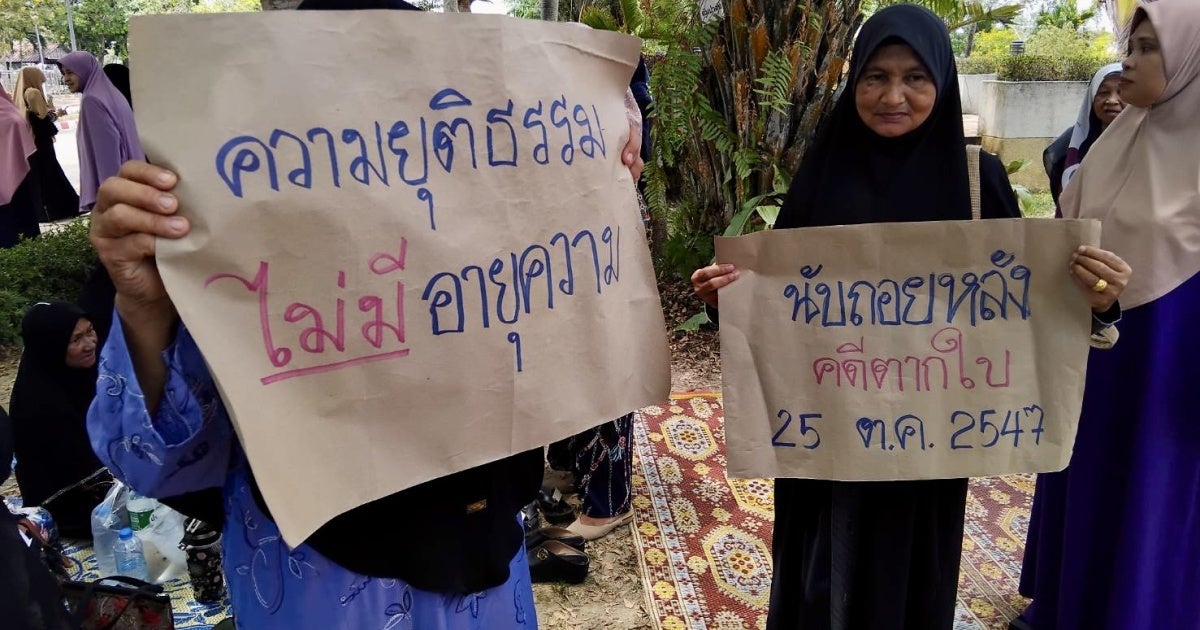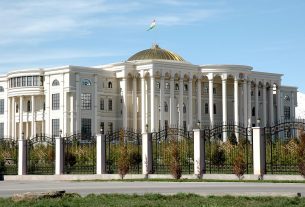|
Getting your Trinity Audio player ready...
|
(Bangkok) – The Thai government should urgently bring to justice officials responsible for the deaths and injuries of scores of ethnic Malay Muslim protesters in Tak Bai district in 2004, Human Rights Watch said today. A failure to do so will call into question Prime Minister Srettha Thavisin’s pledge to strengthen the rule of law in Thailand.
On April 25, 2024, lawyers representing the victims and their families filed criminal charges – including unlawful detention, murder, and malfeasance – against nine former officials in charge of the violent crackdown on protesters in the southern province of Narathiwat two decades ago. Under Thai law, the 20-year statute of limitations will end in October 2024, preventing legal action after that time.
“Despite overwhelming evidence, successive Thai governments have failed to prosecute those responsible for the deaths and injuries at Tak Bai,” said Elaine Pearson, Asia director at Human Rights Watch. “Prime Minister Srettha should show that justice in the south is a priority by ending impunity for the Tak Bai massacre.”
On October 25, 2004, security personnel from various Thai army and police units were mobilized to disperse Muslim protesters in front of a police station in Tak Bai district. Seven protesters were shot dead on the spot, while seventy-eight others were crushed to death as they were being transported to an army detention facility in the neighboring Pattani province. Some 1,200 people were held in army custody for several days without appropriate medical attention. As a result, many protesters suffered severe injuries that required amputation of their limbs.
In December 2004, the fact-finding committee appointed by the government of Prime Minister Thaksin Shinawatra concluded that the methods used to disperse the protesters – including firing live ammunition and deploying army conscripts and rangers inexperienced in responding to protests – were inappropriate and did not conform with established international guidelines and practices. The committee also found that commanding officers failed to supervise the transportation of protesters in custody, leaving the task to inexperienced, low-ranking personnel.
The inquiry identified three senior army officers – including the Fourth Army Region commander, Lt. Gen. Pisan Wattanawongkiri; his deputy, Lt. Gen. Sinchai Nutsathit; and the Fifth Infantry Division commander, Maj. Gen. Chalermchai Wirunpeth – as having failed to properly monitor and supervise the military’s operations, leading to the deaths and injuries of protesters.
In May 2009, the Songkhla provincial court ruled in a post-mortem inquest that 78 people died of suffocation while being held in custody by officials who had carried out their duties. However, the police decided not to press charge against those officials, claiming that the incident was force majeure, a legal term for an unforeseeable event.
As their last resort to seek justice, on April 25, the Tak Bai victims and their families filed criminal lawsuits directly with the Narathiwat provincial court. A preliminary examination will take place on June 24. Prime Minister Srettha should publicly signal his support for efforts to ensure accountability for the Tak Bai massacre, Human Rights Watch said.
“The cycle of abuses and impunity in Thailand’s southern border provinces contributes to an atmosphere in which officials believe they can violate human rights without fear of punishment,” Pearson said. “The United Nations and concerned foreign governments should demand justice for the Tak Bai victims without further delay.”



